Until recently, the typical business traveler fit inside a standard mold; 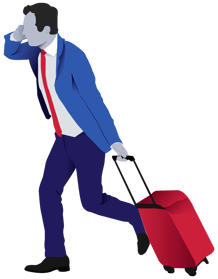 insert: the suited professional rushing to catch the 8 am flight to DC for a same-day meeting or mid-week conference.
insert: the suited professional rushing to catch the 8 am flight to DC for a same-day meeting or mid-week conference.
But as post-pandemic days altered traditional travel preferences, relationship-centric business travel and the evolution of corporate trips into ‘B-leisure’ saw an incredible rise in popularity.
MODIV Mindset data indicates that these lines are blurring now more than ever, with business traveler preferences becoming more similar to those of leisure travelers.
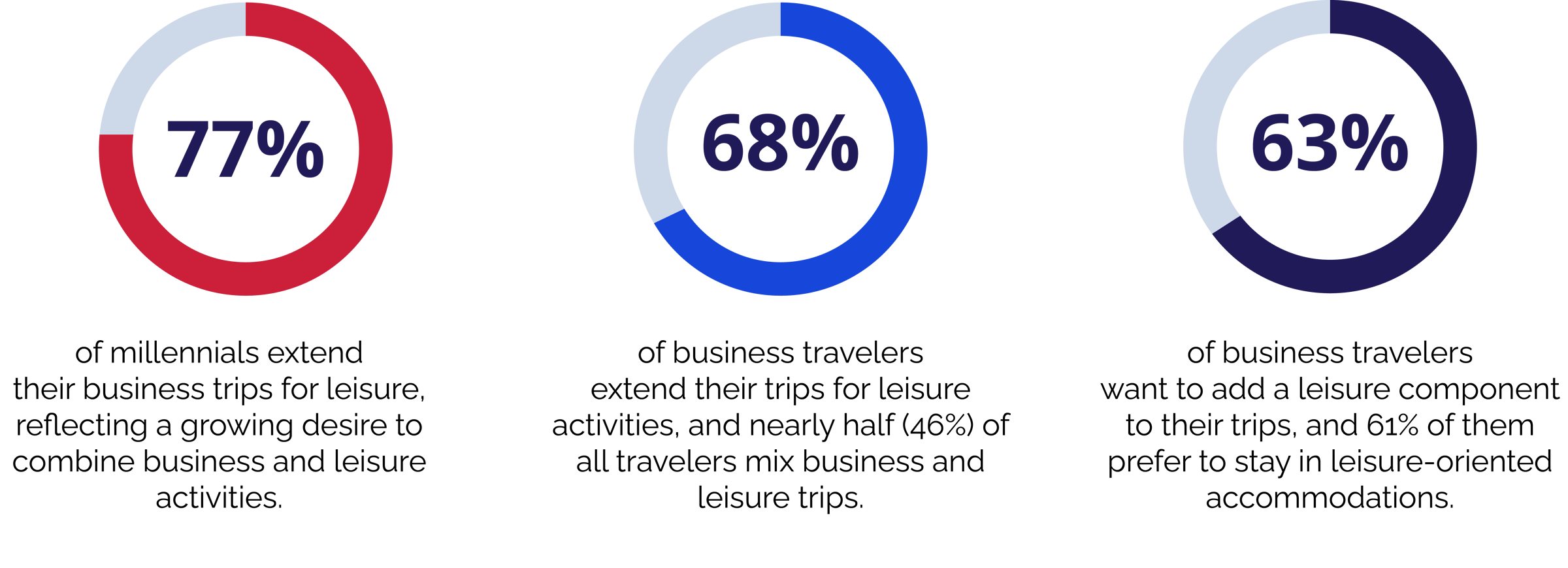
These statistics indicate that catering to business travelers' needs and preferences is becoming more challenging for travel brands, as they must consider both the practical and leisure aspects of their trips. Business travelers now prioritize aspects such as the quality of accommodations, dining options, proximity to leisure activities, and social activities when selecting a travel provider.
Moreover, the recovery of business travel is characterized by fewer but longer trips, as companies opt for increased virtual conferencing use and consider sustainability more strategically. As travel expenditure increases globally, driven by the desire for exploration and a return to normalcy as conditions improve, business travelers' preferences are likely to become more aligned with those of leisure travelers.
Contrary to common perceptions, these two traveler groups share more similarities than we might think.
Traditionally, the once “polar personas” looked like this:
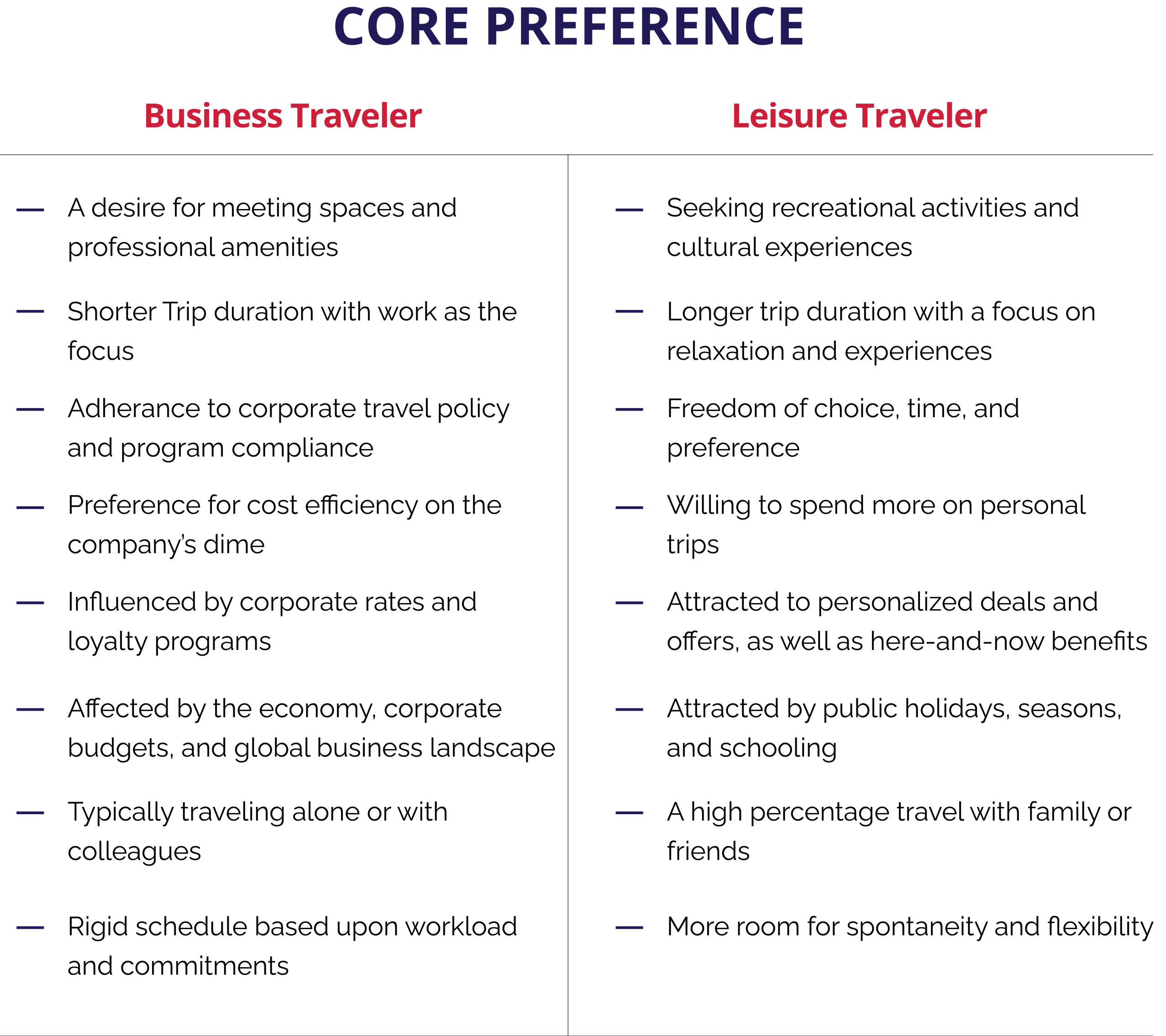
The Personal Touch in Business Travel
‘B-leisure’, and blended travel, is a pandemic-fueled trend with staying power.
In 2022 alone, blended travel was valued at over $497.5 billion in market value, according to Future Market Insights. Blended travel bookings recorded a remarkable year-over-year increase from January to October 2023, reflecting a shift in personal travel departures throughout the week. The interest in combining remote work with a holiday experience unveils a cross-generational trend, particularly among digital nomads, with millennials and Gen Z showing high interest rates. While there is a diverse sentiment among business travelers regarding the recovery of travel spending, this trend is expected to continue as global conditions improve.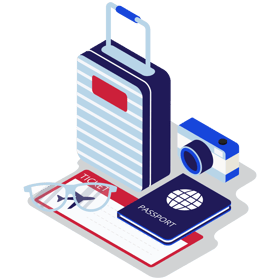
A recent MODIV Mindset study showed 87% of business travelers polled are “extremely likely” to look to weave personal experiences in between business obligations, with 39% looking to capitalize on free mornings or evenings and 32% willing to extend their trip to accommodate a personal or recreational experience. GBTA has also noted a 41% rise in colleagues asking to add a longer stay to their work trips for leisure purposes.
Mindset also shows that leisure travel experiences are motivating business travelers to expect more from their corporate trips. For instance, 82% of business travelers expect some form of relaxation, entertainment, or leisure activities during their business trips, while 76% are willing to invest additional time to explore the destination city. Moreover, business travelers prioritize comfort, convenience, and local cultural experiences over traditional elements such as loyalty programs or premium services.
Individuals embarking on business trips are no longer confined to professional pursuits but are increasingly seeking experiences that combine work and leisure seamlessly.
So, what does the modern day blended traveler look like?
.
The MODIV Take
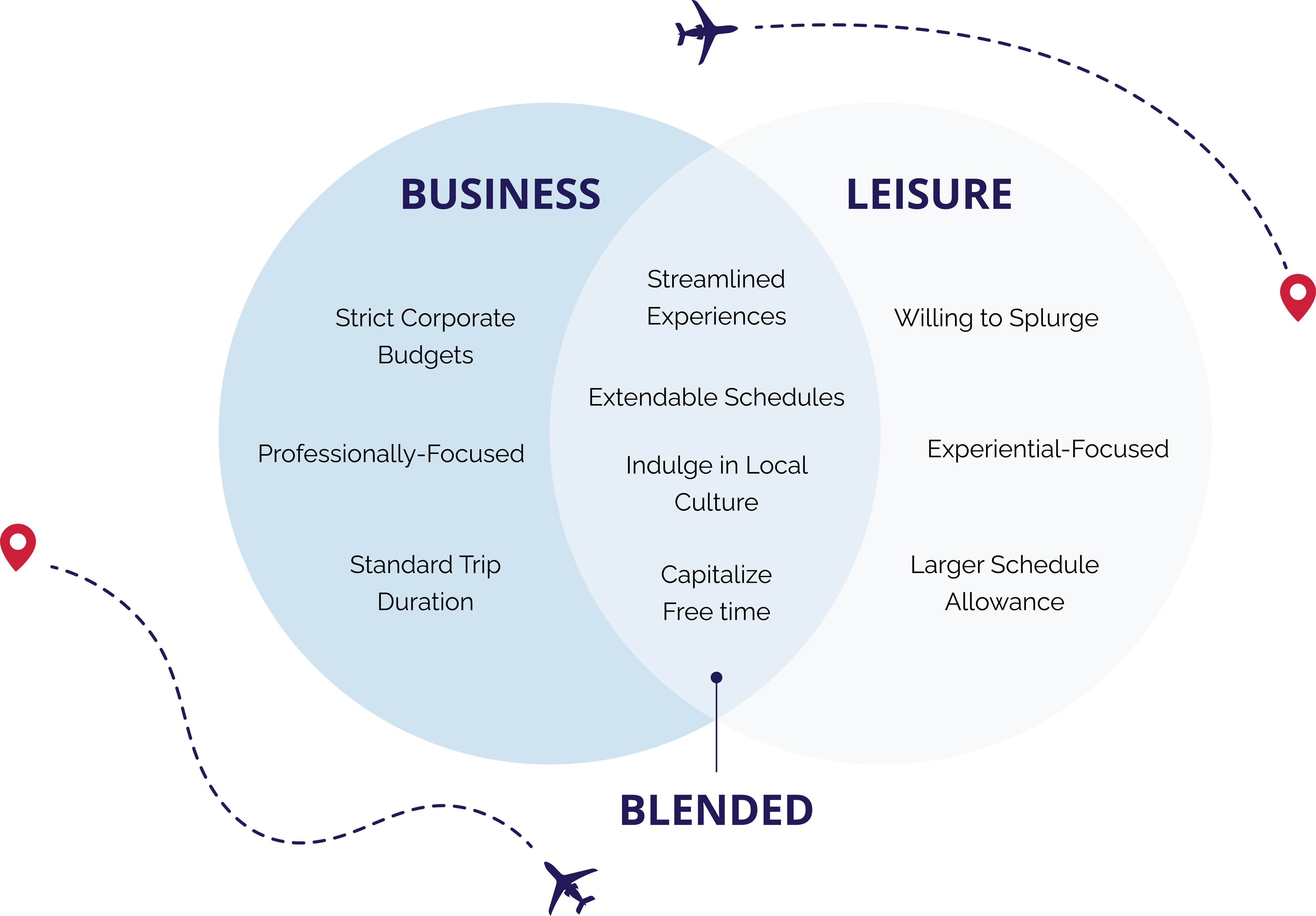
Despite the trend towards blended travel, it’s worth noting that catering to the preferences of both business and leisure travelers requires a nuanced approach.
For example, while trust remains a key factor for both segments, the specific elements that contribute to trust may differ. According to the insights from the files attached, travelers' trust in travel brands is based on pragmatic aspects such as value, quality, and reliability. Additionally, the top three reasons to trust a travel brand are safety and security, quality of accommodations and services, and transparent pricing.
Brands should aim to provide a seamless and integrated experience that caters to both business and leisure travelers, allowing them to switch between modes easily. Some possibilities could include offering customized packages and experiences that allow for more flexibility in terms of scheduling and activities. Additionally, brands could offer streamlined booking processes and digital tools that enable travelers to manage their itinerary on the go.
Travel brands should adopt flexible and customized approaches that cater to individual preferences, schedules, and budget. They should develop blended travel packages that combine business and leisure aspects, such as extended stays, leisure-oriented accommodations, and customizable tour options that reflect the traveler's interests.
Ways hospitality can leverage these new blended travelers?
- Repurposing spaces to encourage business, coworking and meetings
- Enhance traveler productivity with advanced tech support
- Create a target loyalty program that combines work and play
- Establish local partnerships and create special packages to encourage leisure

